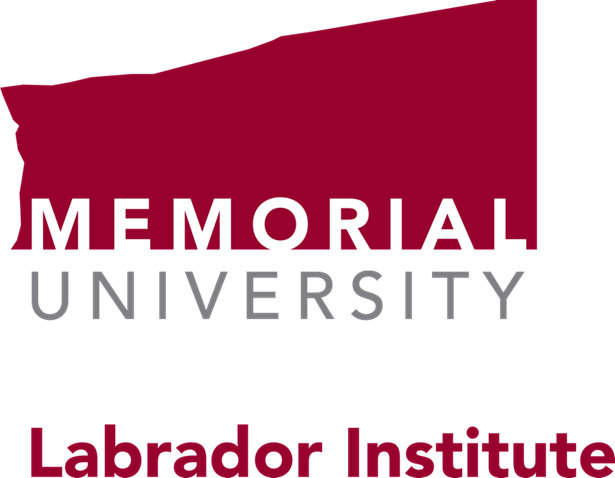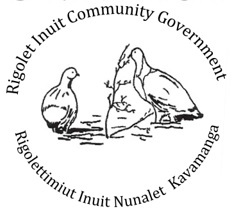Prepared by: Alexandra Sawatzky, Ashlee Cunsolo, and Sherilee Harper
The call for community-based environment & health monitoring in Rigolet, Nunatsiavut
The Canadian North is experiencing intense and rapid socio-cultural stresses resulting from various shifts in the environment, including climate change and resource extraction and development. When combined, these changes present major challenges to wellbeing and ways of life for many Northern Indigenous peoples, including Inuit in the Nunatsiavut Land Claim Settlement Region of Labrador, Canada.
One strategy to help respond and adapt to the health and social impacts of climatic and environmental change is the creation of public health monitoring systems. However, existing monitoring systems are often not structured nor intended to understand the range and cumulative nature of environment-sensitive health impacts that are experienced. Furthermore, these systems do not adequately reflect Indigenous or Northern cultures, ways of knowing, or values, nor are they driven or designed by Indigenous peoples, leading to large gaps in coverage, data quality, and relevance.
There is a clear need for of integrated, community-led, and community- designed environment and health monitoring strategies that include Indigenous knowledge sources, and give equal attention to physical, mental, emotional, and spiritual health and wellness, as defined by Indigenous communities themselves.
Responding to this need, and building from over a decade of climate change and health research in the region, the Nunatsiavut Government Departments of Health and Social Development and Lands and Natural Resources, the Rigolet Inuit Community Government, and researchers from the University of Guelph and Memorial University began working with Inuit and key stakeholders to conceptualise and develop the eNuk Program: a community-based and community-led environment and health monitoring system in Rigolet, Nunatsiavut.
Participatory App development: a tool for monitoring environment- and health- related observations
Inuit in Rigolet are already using many strategies and technologies to adapt to changes in their environment while also promoting health and safety in their community. The eNuk team is working with community members to brainstorm ways of streamlining these existing strategies for collecting and sharing environment and health information into a more comprehensive monitoring system. Together, we are engaging in an iterative design process to develop a mobile App that will enable ongoing, real-time monitoring of environment and health conditions, both within the community and out on the land around the community.
Digging deeper: why are these environment- and health- related observations important to monitor?
Monitoring environment- and health- related observations is something that Inuit in Rigolet have always done. However, environmental conditions are changing so rapidly in and around Rigolet that community members have expressed the need to keep track of these changes in more centralized, comprehensive ways that allows them to share timely, accurate information with each other. Ongoing collection of information through the eNuk program will also help:
- Improve understandings of current environmental changes;
- Offer a means to compare these changes between seasons and years; and
- Inform the development of more relevant and meaningful policies and programs that seek to address the health impacts of these changes.
The eNuk program seeks to build from these existing monitoring efforts in Rigolet and will serve as a model for community-driven environment and health monitoring that produces data for informing Northern policy, programming, and decision-making. This model may also be transferable to other locations and with other populations where localised environment and health monitoring is desirable.
Project Team
Dr. Sherilee Harper, University of Guelph
Dr. Ashlee Cunsolo, Labrador Institute at Memorial University
Jack Shiwak, Rigolet Inuit Community Government
Inez Shiwak , ‘My Word’: Storytelling & Digital Media Lab
Charlie Flowers, Rigolet and Cape Breton University
Michele Wood, Nunatsiavut Department of Health & Social Development
Dr. Daniel Gillis, University of Guelph
Dr. James Ford, McGill University
Dr. Chris Furgal, Trent University
Alexandra Sawatzky, University of Guelph
Oliver Cook, University of Guelph
Funders
Health Canada – First Nations and Inuit Health Branch
POLAR Knowledge Canada
Canada Research Chairs Program
Contact Information
Ashlee Cunsolo, PhD
Director, Labrador Institute, Memorial University
T: @AshleeCunsolo
Sherilee Harper, PhD
Assistant Professor in EcoHealth
Department of Population Medicine, Ontario Veterinary College, University of Guelph
Guelph, ON, Canada, N1G 2W1
P: 1 519 824 4120, ext. 58392
E: harpers@uoguelph.ca
T: @Sherilee_H
Alexandra Sawatzky
PhD Student, Public Health
Department of Population Medicine, Ontario Veterinary College,University of Guelph
Guelph, ON, Canada, N1G 2W1
P: 1 519 824 4120, ext. 54089
T: @_asawatzky












